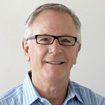

|
By Kerry Bunker, Art Gechman and Jim Rush
July 12, 2012
Facing a volatile and uncertain world, leaders need to be agile and adaptable and able to learn from experience-but all this is easier said than done. Rather than getting overwhelmed, start by focusing on these four pivotal qualities to build a foundation for leadership.
1. Vigilance
To see the nuances and extract more learning from our experiences, we have to be more present in the moment; more alert to subtle differences, distinctions and novelties; and more tuned in to small shifts in context. This kind of mindfulness or focus on the present moment of both external surroundings and internal emotions actually increases productivity. It helps us to see more opportunities and avert dangers that don’t yet exist. It is what Buddhist monks call the beginner’s mind or the capacity to step back from the tried and true, start over, and cultivate new perspectives. Sherlock Holmes was a master of this simple art of noticing, and while we may never reach that level, we can all become more keenly aware and scan our environment with added diligence and increased vigilance.

|
2. Pattern Recognition
Once we have become more vigilant, we need to focus on making better sense of what we are seeing. This is what psychologists call pattern recognition, and it’s a skill that strong problem solvers use all the time. It isn’t just finding connections between seemingly unrelated dots-it’s also identifying the relevant dots by explicating our assumptions, suspending judgment and not jumping to conclusions. In short, we’re not just doing a puzzle. We also need to make certain we are attending to the right pieces of the puzzle.
Our powerful brains are always striving to make connections based on how we define our experiences. And, in fact, learning new skills makes physical changes in our brains. When we think about changing a tried and true approach to something outside our comfort zone, we trigger access to lessons from prior experiences - some positive and some not so much. The more we have extracted from prior events through our vigilance capability, the more connections the brain is able to make. For leaders, superior pattern recognition is perhaps the greatest competitive advantage that can be developed. And, a reflective capacity to leverage the richness and diversity of stored experiences enhances pattern recognition.
3. Mental Rehearsal
Using vigilance and pattern recognition, you now have a catalogue of experiences, connections and patterns. We used to think that we only gain new skills through practice or direct experience. However, neuroscience has established what our intuition suggests. We can also gain skills through observation and rehearsal. Now you can be ready to pull an on-target response from these connections-one that will allow you to thoughtfully complete your mental rehearsal prior to seizing the moment. And even prior to these neuroscience discoveries, many people found deliberate reflection, visualization, self-talk and meditation useful in quieting the mind and mentally preparing for tough challenges. Even smart people have difficulty learning outside their comfort zone and mental rehearsal reduces the floundering and failure.
4. Response Readiness
With your mental rehearsal complete, the task here is to build this kind of response readiness for diverse challenges not previously seen. Response readiness allows you to reduce reaction time and improve quality just as it does in an emergency or natural disaster. You have used vigilance to enlarge your mindset, pattern recognition to enhance your skill in uncovering new connections (and the complexity of your brain), and mental rehearsal to get prepared for the softer or more adaptive challenges. With this, you have built a storehouse or response readiness. Of course, operating outside your comfort zone and acting decisively requires a disciplined, deliberate and systematic development process – learning from experience simply doesn’t happen by osmosis.
The famous Shell story comes to mind. Shell had made scenario planning a part of their business process - taking probable and improbable events and creating a scenario around them and then asking themselves what if. When the oil embargo of 1973 hit, they quickly recognized the situation for what is was-as did their competitors-but because of their rehearsal processes and their response readiness, they acted more quickly, bought crude on the spot market and secured a supply that others did not have.
Even with just these four capabilities as a foundation, leaders can extract more benefit from challenging and developmental assignments, no matter how big and audacious the task is. Each challenge is now a learning opportunity, another opportunity to build your skills and launch yourself to a new level of leadership.
Kerry Bunker, Ph.D., is a former senior fellow at the Center for Creative Leadership. He is a leading researcher on learning how to learn, author of two books, 40 publications and numerous articles. Art Gechman, Ph.D., is a former C-suite executive for a Fortune World 50 U.S. subsidiary and a senior consultant at three leading consulting firms and an advisor to executives at companies such as Shell Oil Company and Dow Chemical. Jim Rush, Ph.D., was the chief learning officer for Marsh Inc. and the Bank of Montreal and a professor at the Ivey School of Business, University of Western Ontario. To contact any of the authors, visit mempartners.com/, or e-mail [email protected].








